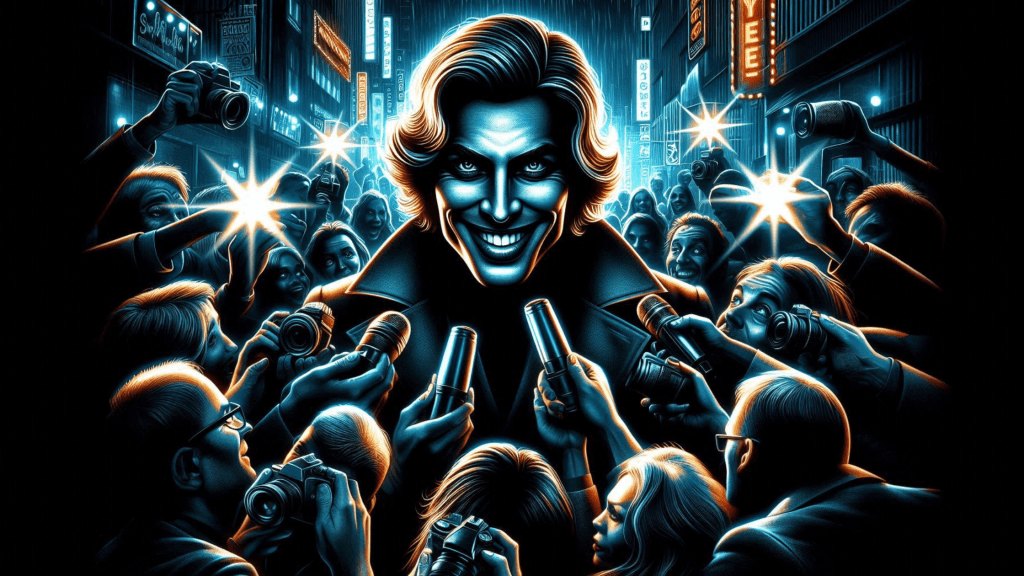Between 1990 and 2020, there have been 12,746 victims of serial killers in the United States. However, the names of these victims are far less known than the names of the people who murdered them. The glorification of serial killers in today’s media has sparked a new debate across the world, blurring the lines between raising awareness and providing entertainment. This sometimes leads to the worship of individuals who are undeserving of such attention.
Media Representation: Documentaries vs. Dramatizations
True crime documentaries shed light on the terrible events that happen in our world and present them factually and truthfully. On the other hand, drama series often add fictional situations or exaggerate real ones for entertainment purposes. Many people tend to glorify or defend serial killers they perceive as attractive, which creates a skewed perspective of the criminals’ actions.
Social media has also played a huge role in the glorification of serial killers today. Humans naturally need entertainment, but filling that need with the wrong content can distort their view of real-life situations.
Thin Line Between Education and Entertainment
Drama series about serial killers often walk a thin line between educating and entertaining. For example, Monster: The Jeffrey Dahmer Story, created by Ryan Murphy and starring Evan Peters, follows the life of Jeffrey Dahmer, showing how he lured men to his home and murdered them. The show also follows his neighbor, who has suspicions about his actions.
This series is chillingly accurate in depicting Dahmer’s crimes, which made it difficult for many viewers to watch. It also sparked a debate about whether the show glorified Dahmer. However, in my opinion, the show did not glorify him. It told the story accurately without adding unnecessary situations purely for entertainment purposes. Some believe the show exploited the victims and their families. While I understand that using someone’s loss for entertainment is wrong, I think intentions must be considered in these situations. The project aimed to shed light on Dahmer’s heinous crimes and honor his victims by ensuring the world knew what happened to them.
Sympathy and Glorification: My Friend Dahmer
Another portrayal of Dahmer’s life is the movie My Friend Dahmer, starring Ross Lynch. This film tells the story of Dahmer’s teenage years and is based on a graphic novel written by one of his friends, who used the pen name Derf Backderf. The movie provides a firsthand account of Dahmer’s high school years, making it an accurate portrayal.
While the movie doesn’t necessarily glorify Dahmer, it does evoke sympathy for him. Between being bullied at school, his mother being placed in a mental institution, and his family falling apart, viewers may begin to feel sorry for him. By the end, you might even understand why Dahmer became the person he was, leading to rationalizing his actions, which can blur the line between understanding and glorification.
Glorification in Extremely Wicked, Shockingly Evil and Vile
Another movie that depicts the life of a serial killer is Extremely Wicked, Shockingly Evil, and Vile, starring Zac Efron as Ted Bundy. This film shows Bundy’s life, including his relationships and manipulation of those around him. However, the movie does subtly glorify Bundy. By the end, you might find yourself rooting for him and his girlfriend, momentarily forgetting that these events happened in real life.
In my opinion, this movie crosses the line from awareness to glorification.
Attractive Actors and Serial Killers
One common trend across many of these movies and shows is the casting of conventionally attractive actors as serial killers. This brings me to my next point: the tendency to praise killers simply because of their looks. For example, the infamous serial killer Ted Bundy had a cult following because people found him attractive. This disrespects the lives of the victims and their families.
There are also other cases, such as the Menendez brothers, who murdered their parents but are still praised in the media. On platforms like TikTok, there are countless edits showing off their features, accompanied by captions like “They are innocent” or “Free the Menendez brothers.” Many people forming these opinions have little to no understanding of the case, basing their beliefs purely on the brothers’ appearances.
In these situations, the victims are forgotten, and their families are disrespected. Essentially, society is telling these families that their loved ones’ murders are somehow justified because the perpetrators were attractive.
Read more: Is Garth Brooks a serial killer?
Documentaries: The Best Source of Education and Awareness
Out of all the forms of media that depict serial killers, I believe documentaries do the best job of prioritizing education and awareness. Shows like Dateline and 20/20 talk about the victims and their families, often featuring interviews with them and even solving unsolved cases. I have never seen an episode of these shows that glorified killers in any way. Documentaries are the best outlet for accurate information in this genre.
Conclusion: The Dangers of Glorification
When discussing and learning about serial killers, where you get your information matters. While documentaries are the most accurate, drama series and movies can be more entertaining. There’s nothing wrong with indulging in a movie or a few episodes, but it’s important to remember that these are dramatized stories, and the information may not always be accurate.
Most importantly, remember that these events happened to real people. Just because someone is attractive does not mean they deserve a free pass, especially when they’ve committed horrific crimes. All these points contribute to stopping the glorification of serial killers, which can lead to copycat crimes and even the loss of more innocent lives.





Pingback: Informative speech topics related to serial killers